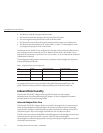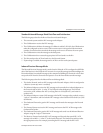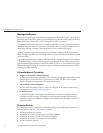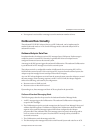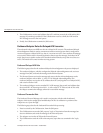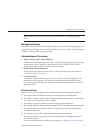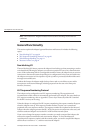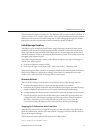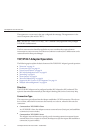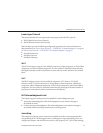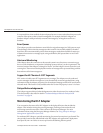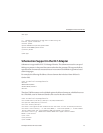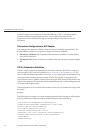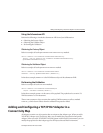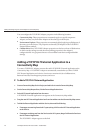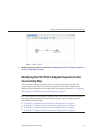
The argument error message is the user-congured alert message. The argument HL7 is the
source component (this must be “HL7”).
Note – The alerter.fatal("error msg", "HL7") method is only applicable to the packaged
TCP/IP HL7 Collaborations.
The Exit recourse action should be applied to any error condition that requires human
intervention to correct an error. Once the error condition is resolved, the Collaboration can be
restarted from the Enterprise Manager.
TCP/IP HL7 Adapter Operation
The following topics explain the basic elements of the TCP/IP HL7 Adapter’s general operation:
■
“Direction” on page 22
■
“Connection Type” on page 22
■
“Lower Layer Protocol” on page 23
■
“HL7 Acknowledgment Level” on page 23
■
“Journaling” on page 23
■
“Error Queues” on page 24
■
“Alerts and Monitoring” on page 24
■
“Support for HL7 Version 2.5 SFT Segments” on page 24
■
“Delayed Acknowledgements” on page 24
Direction
The TCP/IP HL7 Adapter can be congured as either HL7 inbound or HL7 outbound. This
option is determined automatically by the Adapter’s binding (link) in the Connectivity Map.
Connection Type
The connection type indicates how the Adapter establishes a TCP/IP connection. The role can
be as a Client, where the RA connects to the external, or as a Server, where the RA waits for a
connection.
■
Connected as a TCP/IP HL7 Client
As a TCP/IP HL7 client, the Adapter connects to external server (host/port) and establishes
a connection (in active mode).
■
Connected as a TCP/IP HL7 Server
The Adapter waits and listens to a specic port for incoming connection requests from an
external client. Once a request is received, the Adapter accepts the request and establishes a
connection (in passive mode).
SunAdapterforTCP/IPHL7Overview
SunAdapterforTCP/IPHL7User's Guide • October200922



